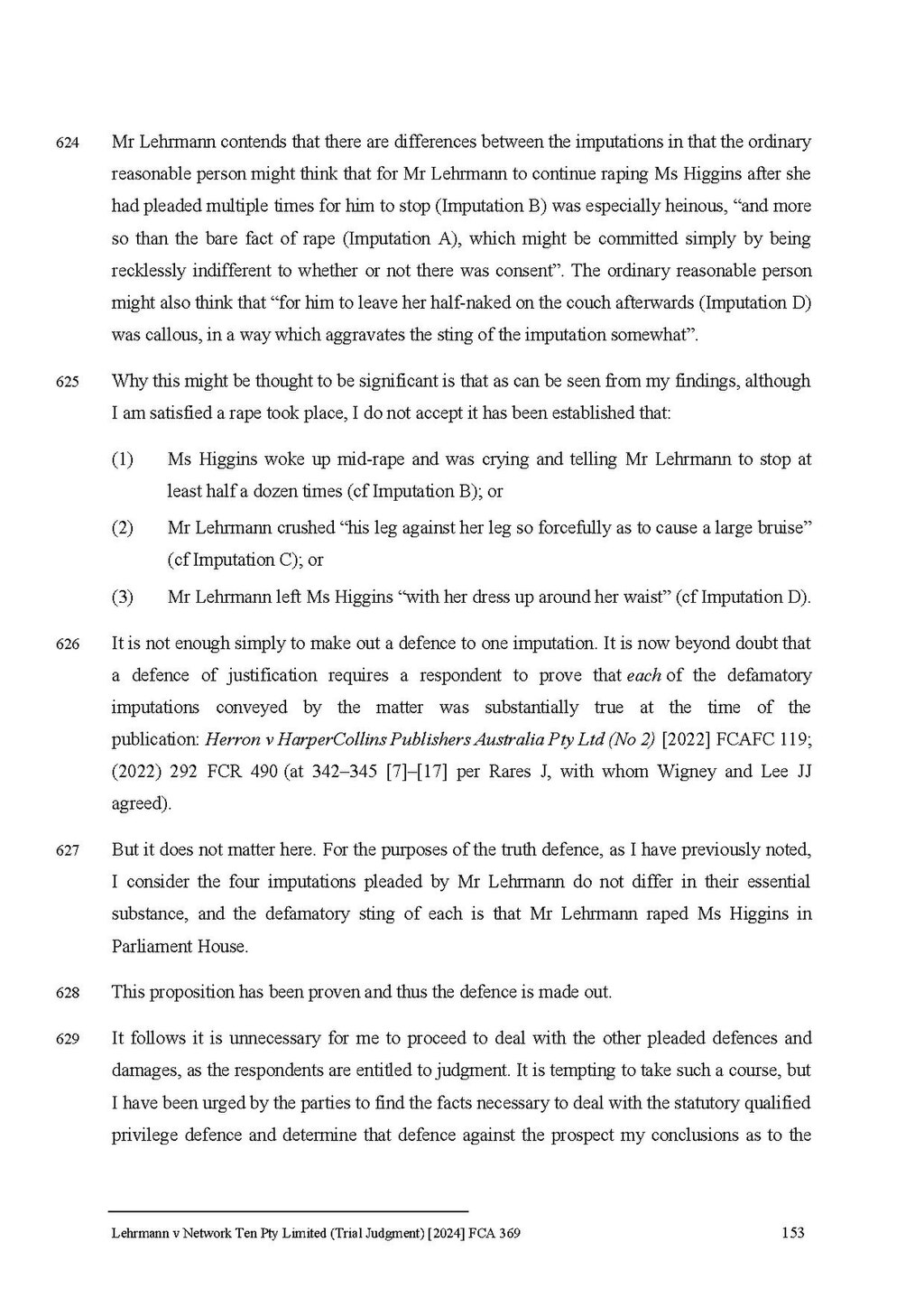624 Mr Lehrmann contends that there are differences between the imputations in that the ordinary reasonable person might think that for Mr Lehrmann to continue raping Ms Higgins after she had pleaded multiple times for him to stop (Imputation B) was especially heinous, "and more so than the bare fact of rape (Imputation A), which might be committed simply by being recklessly indifferent to whether or not there was consent". The ordinary reasonable person might also think that "for him to leave her half-naked on the couch afterwards (Imputation D) was callous, in a way which aggravates the sting of the imputation somewhat".
625 Why this might be thought to be significant is that as can be seen from my findings, although I am satisfied a rape took place, I do not accept it has been established that:
- (1) Ms Higgins woke up mid-rape and was crying and telling Mr Lehrmann to stop at least half a dozen times (cf Imputation B); or
- (2) Mr Lehrmann crushed "his leg against her leg so forcefully as to cause a large bruise" (cf Imputation C); or
- (3) Mr Lehrmann left Ms Higgins "with her dress up around her waist" (cf Imputation D).
626 It is not enough simply to make out a defence to one imputation. It is now beyond doubt that a defence of justification requires a respondent to prove that each of the defamatory imputations conveyed by the matter was substantially true at the time of the publication: Herron v HarperCollins Publishers Australia Pty Ltd (No 2) [2022] FCAFC 119; (2022) 292 FCR 490 (at 342–345 [7]–[17] per Rares J, with whom Wigney and Lee JJ agreed).
627 But it does not matter here. For the purposes of the truth defence, as I have previously noted, I consider the four imputations pleaded by Mr Lehrmann do not differ in their essential substance, and the defamatory sting of each is that Mr Lehrmann raped Ms Higgins in Parliament House.
628 This proposition has been proven and thus the defence is made out.
629 It follows it is unnecessary for me to proceed to deal with the other pleaded defences and damages, as the respondents are entitled to judgment. It is tempting to take such a course, but I have been urged by the parties to find the facts necessary to deal with the statutory qualified privilege defence and determine that defence against the prospect my conclusions as to the
